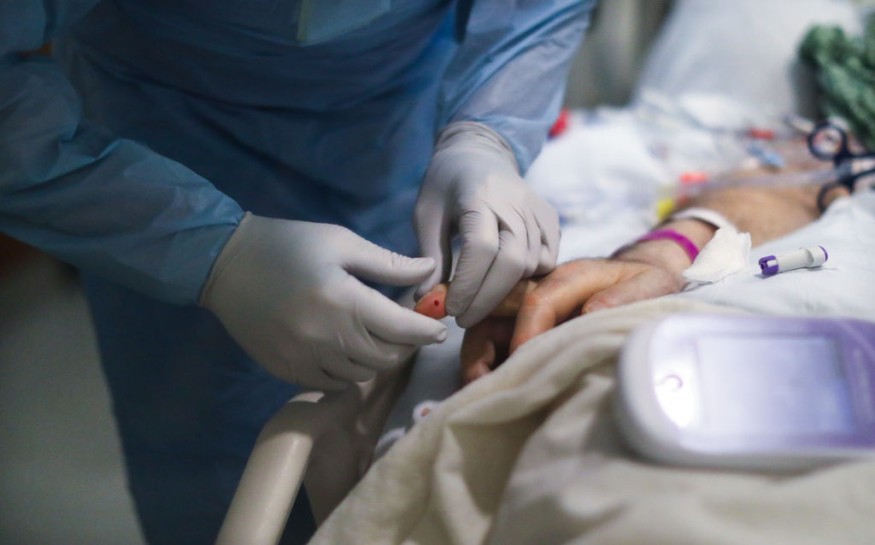Experts recently discovered that some COVID-19 patients have recently developed either type 1 or type 2 diabetes. It remains unclear though, if diabetes could be considered a permanent side effect of the virus.
According to a Business Insider report via MSN, people who have autoimmune disorders, prediabetes or obesity are found to "have high risks of COVID-19 complications." The said report also specified that diabetes is a condition known to be a risk factor for severe COVID-19 cases.
Nonetheless, the new evidence recently proposed, as early mentioned, the opposite might also be possible that some patients who have recovered from this disease that caused the pandemic, are developing diabetes, be it a type 1 or type 2 diabetes.
ALSO READ : New Study Reveals Babies Can Pick Up COVID-19 Immunity in Their Mother's Womb During Pregnancy

More than 14% Patients Diagnosed with Diabetes
Based on research published in Diabetes, Obesity and Metabolism in November 2020, over one in 10 COVID-19 patients or 14.4 percent "were newly diagnosed with diabetes" following recovery from the disease that resulted from the novel coronavirus.
The percentage was based on an analysis of over 3,700 patients across eight different studies. In relation to the finding, new diabetes cases, the study authors composed of researchers from a number of universities including Canada-based McMaster University said, could be the result of infection and insulin problems associated with COVID-19
The study investigators also found that COVID-19 might worsen current health conditions including prediabetes, leading to type 2 diabetes.
In at least some of the said cases, it could be that some patients in the research were already diabetics and were unaware of it until they were confined at the hospital due to COVID-19.
Evidence presents though too, that COVID-19 might be enough for the present metabolic health conditions to worsen and develop into full-blown type 2 diabetes, said NYU Langone Health assistant professor of endocrinology, Dr. Jose Aleman.
New Type 1 Diabetes Cases Cause Confusion Among Experts
What's not so clear at present is how it might also be associated with new cases of type 1 diabetes. The said report indicated that while type 2 diabetes takes place when individuals become "less sensitive to insulin," type 1 diabetes take place when people are not producing sufficient insulin in the first place, because of lack of specific cells in their pancreas also known as beta cells.
Dr. Aleman explained, the best theory they presently have is that COVID-19 can lead the "immune system to overreact and destroy" some of the own cells of the body while combating the virus.
The study investigators found discovered that the COVID-19, or the body's immune reaction to it, can interrupt beta cells in the pancreas, possibly stimulating the beginning of type 1 diabetes.
Patients who have existing auto-immune illnesses, or older patients who have problems with their immune system, may be specifically at risk for this.
Is This Post-COVID-19-Related Occurrence Permanent?
Experts say, they do not yet know enough about the manner these two conditions are associated to completely understand the long-term prognoses of the patient.
It is possible that at least some patients are likely to experience ongoing problems. "I think," said Aleman, this is going to be one of COVID-19 disease's "long-haul complications."
Momentarily, he suggests that people who are at risk diabetes begin treatment for under conditions including "obesity and high blood sugar now as a preventive measure."
He added, it is a challenge for one to undergo treatment when he's already sick and hospitalized, "and this is a motivation to treat" the said conditions now.
RELATED TOPIC : UK May Be the First Country to Authorize COVID-19 Vaccine
Check out more news and information on COVID-19 and Diabetes on Science Times.












